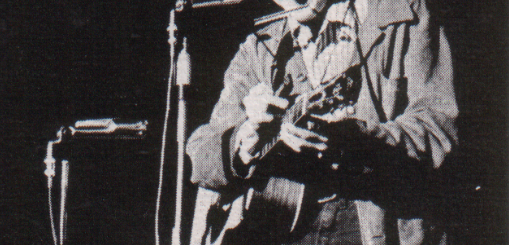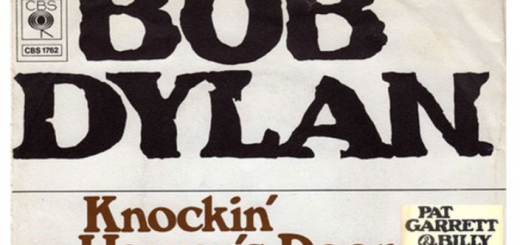Just Like Tom Thumb’s Blues by Bob Dylan Lyrics Meaning – Unraveling Dylan’s Poetic Odyssey
- Music Video
- Lyrics
-
Song Meaning
- A Journey Through Juarez: More Than Meets the Eye?
- In Search of Saint Annie: A Quest for Salvation
- Sweet Melinda’s Duality: Goddess of Gloom or Siren of Solace?
- The High Stakes of Housing Project Hill: Fame, Fortune, and Futility
- The Unforgiving Nature of Fame: Angel’s Descent and the Narrator’s Exodus
Lyrics
And your gravity fails and negativity don’t pull you through
Don’t put on any airs when you’re down on Rue Morgue Avenue
They got some hungry women there and they really make a mess outta you
Now, if you see Saint Annie, please tell her thanks a lot
I cannot move, my fingers are all in a knot
I don’t have the strength to get up and take another shot
And my best friend, my doctor, won’t even say what it is I’ve got
Sweet Melinda, the peasants call her the goddess of gloom
She speaks good English and she invites you up into her room
And you’re so kind and careful not to go to her too soon
And she takes your voice and leaves you howling at the moon
Up on Housing Project Hill, it’s either fortune or fame
You must pick one or the other, though neither of them are to be what they claim
If you’re lookin’ to get silly, you better go back to from where you came
Because the cops don’t need you, and man, they expect the same
Now, all the authorities, they just stand around and boast
How they blackmailed the sergeant-at-arms into leaving his post
And picking up Angel, who just arrived here from the coast
Who looked so fine at first but left looking just like a ghost
I started out on burgundy but soon hit the harder stuff
Everybody said they’d stand behind me when the game got rough
But the joke was on me, there was nobody even there to bluff
I’m going back to New York City, I do believe I’ve had enough
Bob Dylan, the perennial poet laureate of rock ‘n’ roll, is known for his masterful weaving of words into tapestries that display the human condition in hauntingly beautiful ways. ‘Just Like Tom Thumb’s Blues’ is a testament to his ability to blend the personal with the universal, the literal with the allegorical—a song that resonates as much today as it did upon its release in 1965.
The song—a melancholic, lyrical trip through a series of existential and somewhat nightmarish vignettes—invites listeners to traverse the landscapes of despair and redemption. Dylan’s enigmatic verses are cryptic, evocative, and densely packed with imagery that calls for a deep dive into their hidden meanings and the emotions they evoke.
A Journey Through Juarez: More Than Meets the Eye?
Setting the scene in a rain-drenched Juarez during Easter, Dylan paints a picture of dislocation and desolation. Through this opening line, he instantly teleports the listener to a setting that is as culturally rich as it is filled with despair. The ‘gravity’ that fails could be a metaphor for the loss of moral direction or spiritual grounding, leaving the narrator in freefall, struggling against an all-consuming negativity.
The choice of Juarez is no accident. This border town, bustling and chaotic, serves as a perfect backdrop for a tale of personal disarray. It’s a place where cultures clash and where one can easily lose oneself—a microcosm of the song’s broader theme of searching for, but not quite finding, a place of solace or understanding.
In Search of Saint Annie: A Quest for Salvation
Dylan introduces us to characters that appear like ghosts, guiding or taunting the narrator’s wayward path. Saint Annie might be seen as an elusive figure of hope or redemption. She is a critical touchstone in the story, someone the narrator desperately wants to thank but cannot muster the strength to reach.
The inability to move, the knotted fingers—these images convey a sense of paralysis, both physical and emotional. The ‘doctor’ who withholds answers could symbolize the gap between suffering and healing or the harsh realities one must face when the illusions of easy remedies are stripped away.
Sweet Melinda’s Duality: Goddess of Gloom or Siren of Solace?
The paradox of Sweet Melinda’s character—a fluent English speaker, inviting yet imposing, affirming yet isolating—serves to amplify the song’s recurring theme of duality and contradiction. She represents a choice and a consequence, a fleeting comfort that leads to a literal and figurative silencing.
Dylan’s portrayal of the ‘goddess of gloom’ is fraught with irony. Sweet Melinda is a keeper of knowledge and loneliness, one who brings the narrator to an otherworldly state—a ‘howling at the moon’ that is as much a call of primal pain as it is a yearning for transformation.
The High Stakes of Housing Project Hill: Fame, Fortune, and Futility
Housing Project Hill stands as a metaphorical crossroads between ambition and reality. To ascend the hill is to grapple with the choices of ‘fortune or fame,’ both of which prove to be illusory in their promises. The song warns against the folly of seeking superficial success and the emptiness that often accompanies it.
The hill becomes a battleground where illusions are shattered. The stern advice to return from whence one came harks back to themes of displacement and the unfulfilling nature of transient desires. ‘Going back to from where you came’ is a refrain that speaks to the idea of a return to one’s roots or a simpler, more authentic existence as a possible escape from the trappings of the hill.
The Unforgiving Nature of Fame: Angel’s Descent and the Narrator’s Exodus
Angel, who arrives hopeful and soon becomes ghostlike, embodies the destructive transformation wrought by the pursuit of fame. The corrupting authorities who not only stand by but actively contribute to her downfall illustrate a society that devours its own—a commentary on the soullessness of a culture that values people only for their fleeting utility.
Dylan’s conclusion is a weary surrender to the overwhelming forces at play. Having witnessed the specters of betrayal and disillusionment, the narrator decides to retreat. The ‘going back to New York City’ signals a retreat from the front lines of a battle that cannot be won and a weary acknowledgement of the limits of an individual’s endurance in the face of forces larger than themselves.








